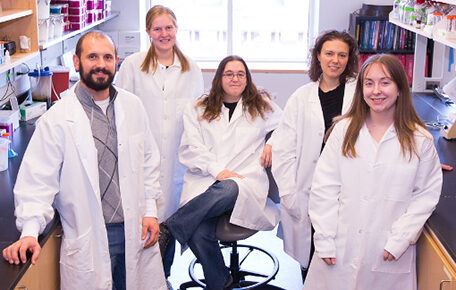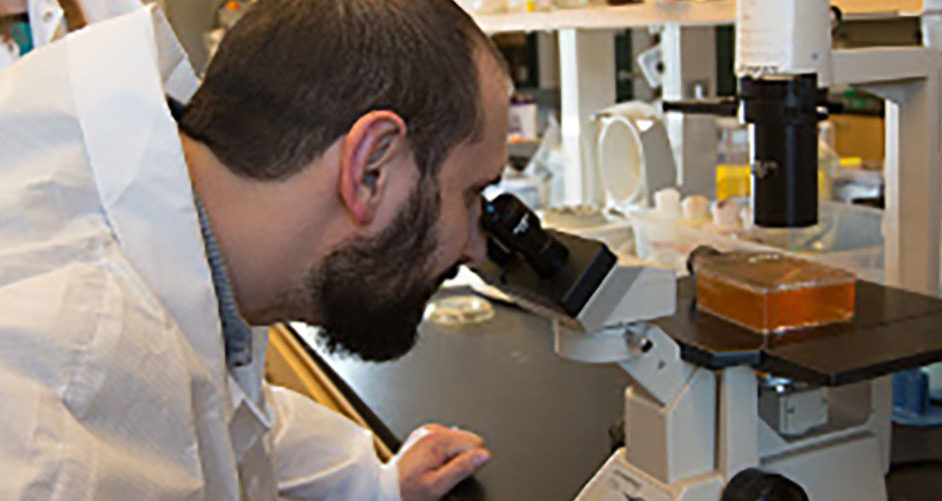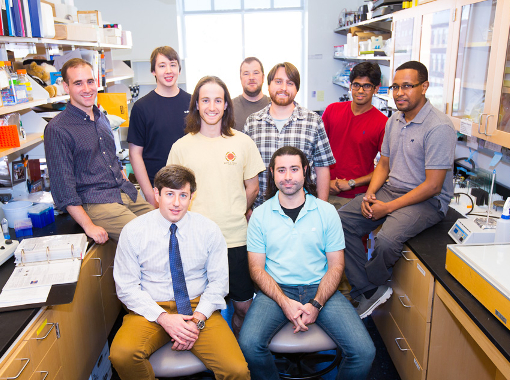Our Perspective
Over the past four decades, Immunology has evolved into a field in which fundamental, translational, and clinical questions are analyzed at levels ranging from individual molecules to whole organisms, utilizing an array of novel molecular, cellular and analytical techniques. Transcending the early understanding of the immune response as a means to control infection and as the basis for autoimmunity and allergy, we now appreciate that the immune system is a central player in a variety of disease processes, including control and promotion of cancer, development of cardiovascular disease, and brain neurological function.
Understanding hematopoietic development processes that are central to creation of an immune system illuminates immune deficiencies, hematopoietic malignancies, and autoimmunity. Conversely, immunological research has benefitted from advances in other fields. For example, basic discoveries in cell biology and vascular biology have led to new insights into antigen processing and presentation, apoptosis and necrosis, and cell trafficking. The critical point is that immunological research in the 21st century is intensely multi-disciplinary and ideally collaborative, relying on well-trained immunologists who can appreciate and effectively interact with researchers in other biomedical disciplines.
The Immunology Training Program at UVA provides a comprehensive and focused exposure to the workings of the immune system, and the opportunity to engage in independent research activities with world-class investigators in the field of Immunology. We believe that the best training environment in Immunology is interdisciplinary, involving intellectual input from basic and clinical science faculty, and occurring at the intersection of immunology with infectious diseases, cancer, vascular biology, cell biology, and molecular biology. Biomedical research at UVA has long been recognized for scientific excellence and collegial interactivity. Combined with cutting edge technological facilities, it is an ideal environment in which to train the next generation of immunologists.
As a faculty, we believe that understanding immunological processes that operate in one context, such as autoimmunity, will have implications for understanding another, such as cancer immunotherapy. Thus, we strive to train immunologists who are interested in the workings of the immune system as a whole, and not just in the context of their current research area. Immunology has always been a discipline that spans the range from fundamental biological processes to understanding and treatment of disease.
The structure and activities of the Immunology Training Program are also designed to bridge the gap between basic and clinical science. This is achieved by recruitment of a diverse group of mentors, including a strong cohort of translational scientists who look to move work in animal models into patient settings. It is also achieved by including elements in the curriculum and in trainee-related activities that expose PhD-based graduate students and postdoctoral fellows to clinical problems through engagement with clinical faculty. Similarly, we educate Physician-Scientists postdoctoral fellows in cutting edge approaches to address questions in human Immunology at a basic level.
Our trainees leave UVA with an understanding of both fundamental and clinical research, and how laboratory work can be translated into patient treatment and disease prevention. As importantly, we empower trainees to pursue rigorous research in their chosen area, while also understanding the cutting-edge technologies and analytical approaches that can influence their future research.



